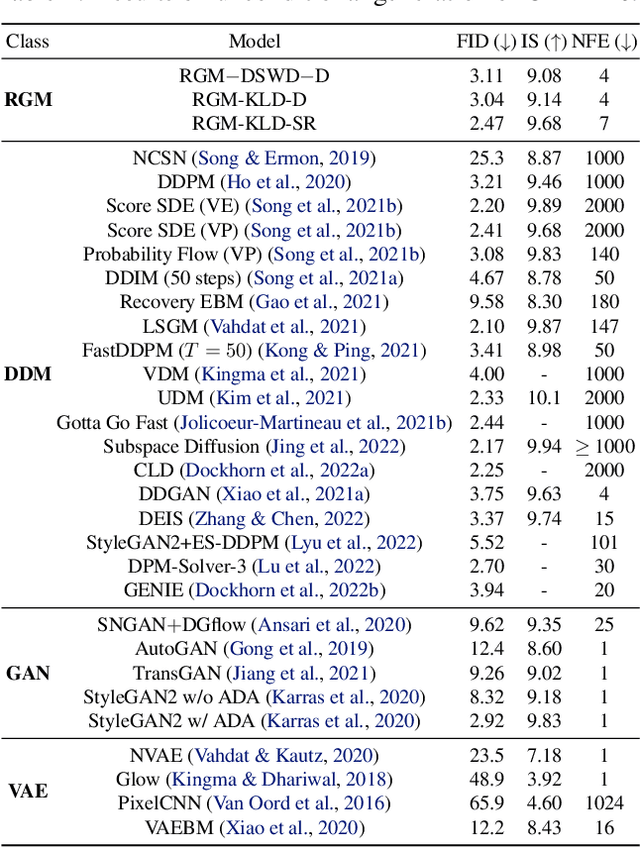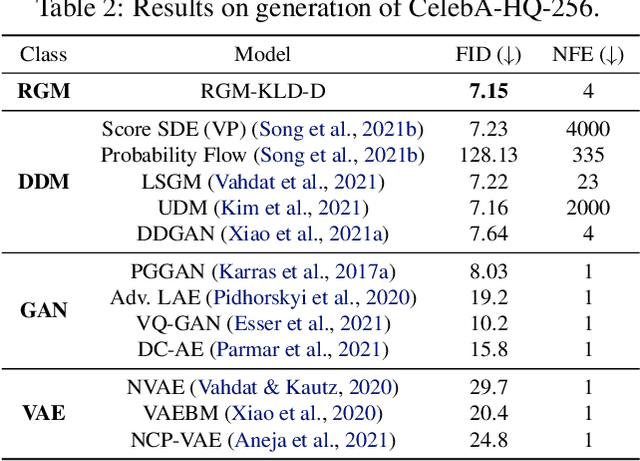Restoration based Generative Models
Paper and Code
Feb 20, 2023



Denoising diffusion models (DDMs) have recently attracted increasing attention by showing impressive synthesis quality. DDMs are built on a diffusion process that pushes data to the noise distribution and the models learn to denoise. In this paper, we establish the interpretation of DDMs in terms of image restoration (IR). Integrating IR literature allows us to use an alternative objective and diverse forward processes, not confining to the diffusion process. By imposing prior knowledge on the loss function grounded on MAP-based estimation, we eliminate the need for the expensive sampling of DDMs. Also, we propose a multi-scale training, which improves the performance compared to the diffusion process, by taking advantage of the flexibility of the forward process. Experimental results demonstrate that our model improves the quality and efficiency of both training and inference. Furthermore, we show the applicability of our model to inverse problems. We believe that our framework paves the way for designing a new type of flexible general generative model.
 Add to Chrome
Add to Chrome Add to Firefox
Add to Firefox Add to Edge
Add to Edge